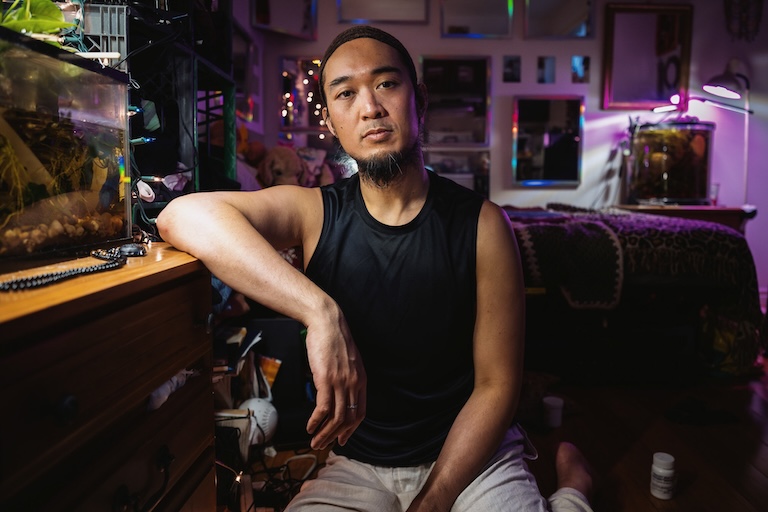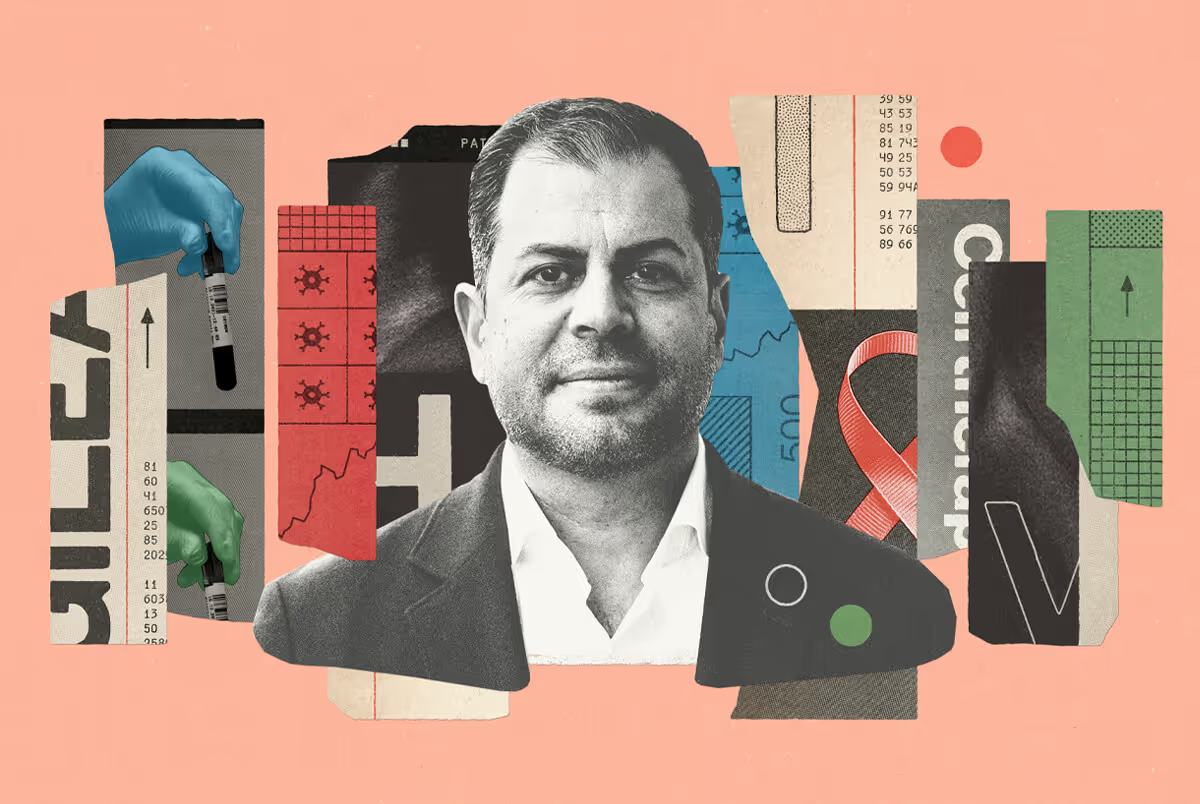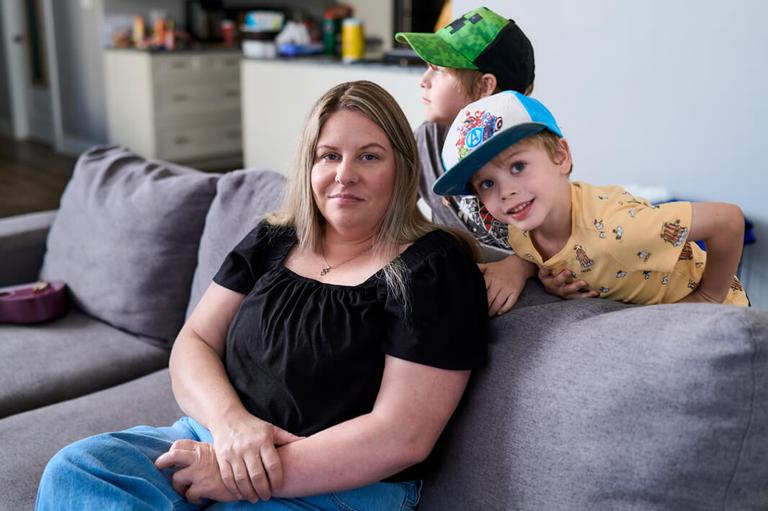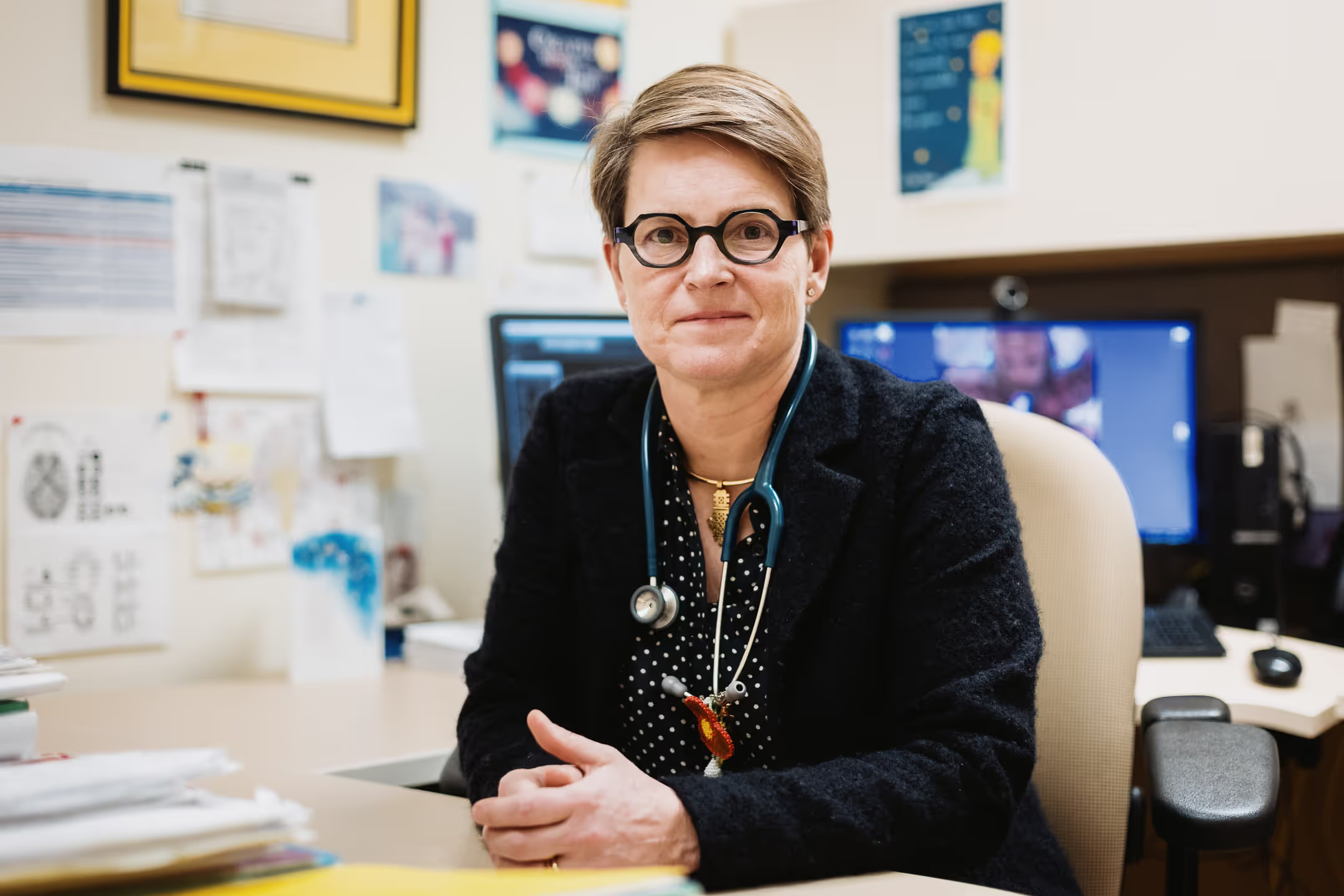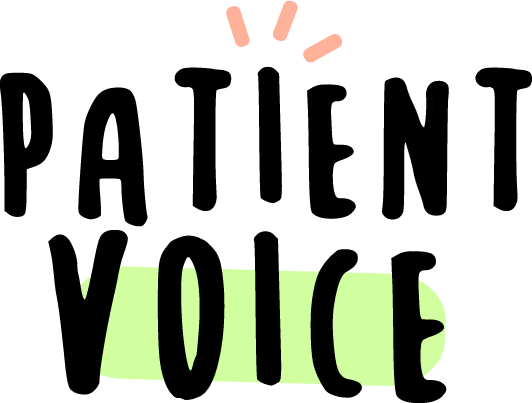
Fatoumata K. Oumarou is a writer and French language instructor from Moncton, New Brunswick. She's a proud supporter of the Canadian Fabry Association and is on a mission to raise awareness about the various impacts of rare disease.
June 1, 2021. It’s a cold and cloudy day today. Big dark clouds hang in the sky, the wind is blowing, rain is falling, and the few leaves left on the trees seem to announce the upcoming season. I really don’t feel like going out today, but I have to. I have an appointment with a geneticist.
It’s been 12 years now since I was diagnosed with high blood pressure. I didn’t really worry much at first because ever since I was a kid, high blood pressure has been a frequent topic of discussions in my family. My mom, grandma, aunts, and even younger sisters are all affected by it, so being on high blood pressure medication was a normal thing to me.
But when a yearly wellness check in 2016 showed that I had an abnormal heartbeat, I started to become a little worried about my health. At that point, the cardiologist told me not to worry, but I decided to take matters into my own hands by walking more, exercising, and making more healthy choices.
Today, as I walk out of the geneticist’s office, I can’t help but retrace all the events that have happened since. Five months ago, I was rushed by my husband to the emergency room with chest pains that didn’t go away for 48 hours. I ended up spending 11 days in the cardiology department waiting for an angioplasty, which showed no coronary blockage but a hypertrophic ventricle and proteinuria. From that moment, I knew that I needed to find out what was lurking in my genes.

Facing and managing the unknown
Soon after, the geneticist calls with my results: I have Fabry disease.
As strange as it sounds, I feel relieved. I’ve been through thyroid trouble, gallbladder stones, and various other health challenges, none of which I realized were related and all of which I previously considered minor. Now I know the culprit behind it all: Fabry.
I immediately have so many questions. Is there a specialist for my illness? Is there a treatment? Is there a cure? How will Fabry disease affect my life as I age?
I soon find out that not only is there a specialist for Fabry disease in Halifax, but that he happens to be one of the best doctors I’ve ever met. As a rare disease patient searching for answers, I not only get all the information I’m looking for, but also a treatment plan. I feel lucky — even though there’s no cure for Fabry disease.
In my opinion, orphan disease patients like myself are often misunderstood because most of the time, the correlation between the multiple symptoms isn’t obvious. The feeling of isolation can be psychologically hard to bear, giving rise to a need to meet other people in the same situation, to feel included and engaged in the process of finding a solution, and to want to attend conferences, meetings, webinars, and so on. Getting educated, learning how to better face the challenges of Fabry, and connecting with a community are empowering, as is helping to raise awareness about the illness.
“It’s frustrating to know that you may be experiencing symptoms, but it could take years for them to be properly tested and diagnosed.”
Overcoming huge challenges
My biggest challenge is finding where it all started — which side of the family carries the gene. In my case, it’s still unknown. My father passed away at just 29 years of age and only one of his siblings is still alive, but she lives in Niger and the test is not available there.

On my mother’s side, high blood pressure is prevalent, but that doesn’t mean that Fabry is the cause. My mission is to educate both sides of the family so that they can be aware of what may lie within their genes.
Only a few of my family members have access to the testing required to confirm a Fabry diagnosis (as most countries don’t have testing available), and they may still not be eligible for treatment.
Even if they did have access to testing, a majority of the physicians that I spoke to about Fabry disease have never heard of the condition. This is another issue faced by people with rare diseases. It’s frustrating to know that you may be experiencing symptoms, but it could take years for them to be properly tested and diagnosed.
Another huge issue is access to treatment in many countries. When I attempt to educate and warn my family members, they ask why they’d want to know if they have Fabry disease if they wouldn’t be able to access treatment anyway. Knowing their diagnosis without being able to do anything about it would only cause them stress and anxiety, they argue.
.jpg)
Raising awareness
Helping to spread awareness about Fabry disease has become one of my main goals in life. I aim to be patient and resilient when it comes to educating others. We have to keep raising awareness and never give up until a cure is found.
If you’re also living with a rare disease, or want to help advocate for those of us who are, here are some ways to reach more people:
- Writing blogs on awareness platforms
- Sending information to as many physicians as possible
- Creating and distributing informational pamphlets
- Hosting and attending meetings and conferences to share information and experiences
- Making sure the patients are involved in educating people
It’s a long road to get the word out efficiently and effectively, but as an African proverb says, “If you want to eat a whole elephant, you will have to consume it one bite at a time.”
{{CTA}}
For additional information about Fabry disease or to seek support, please visit the Canadian Fabry Association. To learn more about the challenges facing Canadian rare disease communities, you can visit the Canadian Organization for Rare Disorders (CORD).
